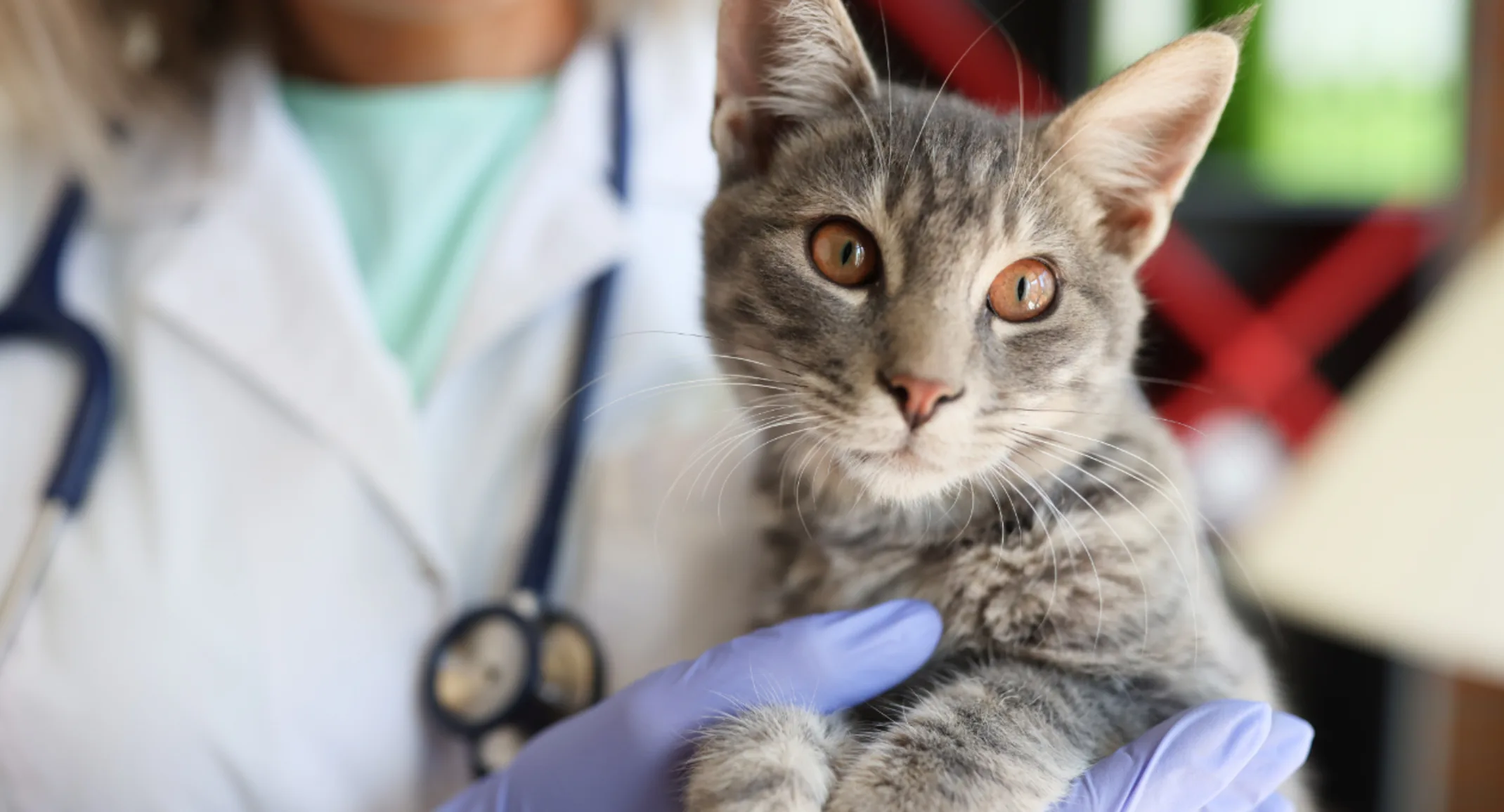Here’s the Scoop on Poop (and Bloodwork): Why Parasite Screening is a Big Deal
August 11, 2025 · Veterinary Services

We know you’ve heard us say it more than once: “Please bring in a stool sample for your pet’s wellness or semiannual visit.” And we get it. That might seem like a weird or unpleasant request. But there’s an important reason we ask.
Parasite screening, including testing your pet’s stool and blood, helps usfind hidden infections early, protect your pet’s health, and evenreduce the risk of disease spreading to people.
This isn’t just a routine check box. This is real preventive medicine.
Fecal Testing: A Closer Look at What You Can’t See
Even if your pet seems perfectly healthy, parasites could still be living in their digestive system. Some of the most common intestinal parasites we see include:
Roundworms – Zoonotic (can infect people), especially children. Can cause diarrhea, weight loss, and even blindness in humans.
Hookworms – Also zoonotic. Can cause skin rashes and digestive upset.
Whipworms – Cause inflammation, chronic diarrhea, and weight loss in pets.
Giardia – A protozoan parasite that causes smelly, greasy diarrhea and can spread easily between pets.
Coccidia – More common in puppies and kittens, but can cause illness in any age.
Many intestinal parasites shed microscopic eggs, cysts, or antigens in your pet’s stool and often, there are no obvious symptoms. That’s why we send every sample to a professional veterinary laboratory, where they perform a microscopic examinationand advanced antigen testing. This combination gives us a much more accurate and sensitive way to detect hidden infections compared to older, less precise methods.
Important: The CDC reports that roundworms remain one of the top causes of parasitic blindness in childrenin the U.S. This is why fecal testing matters not just for your pet — but for your family, too.
That’s why we ask: please bring a fresh stool sample to your pet’s wellness or semi-annual visit. It’s a small step that gives us big insight.
Heartworm Testing: One Missed Dose Can Be All It Takes
Heartworm disease is a serious and potentially fatal condition spread by mosquitoes. It affects both dogs and cats, though it’s often harder to detect in cats.
The heartworms grow and live in the heart, lungs, and blood vessels, causing damage that can lead to coughing, fatigue, weight loss, and even heart failure. Treatment is expensive and not without risks, especially if the disease is advanced.
That’s why we follow the American Heartworm Society’s recommendations and test for:
Heartworm antigen – This detects adult female heartworms.
Microfilariae – These are the baby worms found in the bloodstream. Some infections may be missed if only antigen testing is performed, which is why we do both.
Even if your pet is on monthly prevention, annual heartworm testing is essential to ensure the medication is working as expected. Things like vomiting a pill, late refills, or partial absorption can compromise protection, and you wouldn’t know it until it's too late.
Tick-Borne Disease Screening: Silent Threats That Can Linger
Ticks aren’t just an outdoor nuisance, they can transmit serious diseases that affect your pet’s long-term health. These include:
Lyme disease – Can cause joint pain, fever, kidney damage, and fatigue.
Ehrlichiosis – Affects the immune system and blood clotting.
Anaplasmosis – Causes fever, lethargy, and joint pain.
What’s tricky about tick-borne diseases is that they often don’t show signs for weeks or even months. A pet may seem fine on the outside while the disease slowly causes damage on the inside.
The Companion Animal Parasite Council (CAPC) recommends regular screening for vector-borne diseases, especially in high-risk regions. Many of these diseases are treatable, but only if we catch them early. Tick exposure can happen even if your pet never leaves the yard. Ticks can latch onto other pets, wildlife, or even your clothes and find their way indoors.
Let’s Be Honest: All This Testing Adds Up — So We Created a Bundle
We understand that keeping up with all of this screening, testing, and prevention can feel overwhelming and expensive. But we also know it’s one of the most important things you can do to help your pet live a long, healthy life.
That’s why we offer a Parasite Screening Bundle — a discounted package that includes all the most critical tests in one easy, cost-effective appointment:
✅Heartworm antigen + microfilariae testing
✅Tick-borne disease screening (Lyme, Ehrlichia, Anaplasma)
✅Fecal parasite screening using advanced lab testing
This bundle gives us a comprehensive view of your pet’s health. We can catch diseases early, before they cause symptoms and before they become harder (and more expensive) to treat.
And yes, it’s discounted compared to running each test individually. Because we believe good medicine should be affordable, too.
Here’s What to Do Before Your Next Appointment
✔️Bring a fresh stool sample (within 24 hours, stored in a sealed plastic bag or clean container).
✔️Don’t skip your pet’s annual or semi-annual exam — that’s our best chance to catch issues early.
✔️Ask about the Parasite Screening Bundle — our team is happy to walk you through what’s included and when your pet is due.
One Simple Test Could Make a Big Difference
Parasite screening isn’t just “extra.” It’s essential preventive care and we make it easier with bundled options that work for your schedule and your budget.
If you have any questions, or if your pet is due for a screening, give us a call or request an appointment online. We’re here to help you protect your pet’s health from the inside out — poop, bloodwork, and all.
